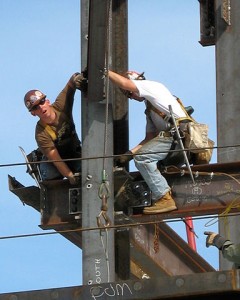
Skilled tradespersons in eligible vocations like construction work will be able to apply for Canadian permanent residence under the new Federal Skilled Trades Program (FSTP) (Paul Keheler)
Citizenship and Immigration Canada (CIC) unveiled information on Friday about the new Federal Skilled Worker Program (FSWP) that will be launched in the new year.
The revised program will have more demanding language requirements, more selective credential assessment, and will give preference to Canadian work experience over foreign work experience, among other changes.
CIC placed a temporary freeze on the acceptance of new applications for the FSWP on July 1st to give the immigration department time to instate change that it said were needed to address shortcomings in the program.
The following are the major changes to the FSWP that were announced in Friday’s release:
- Increasing the maximum points awarded for proficiency in an official language, from 16 to 24 points
- Awarding a maximum of 12 points to applicants aged 19 to 35, and decreasing the points awarded until age 46
- Reducing the maximum number of points awarded for foreign work experience from 21 to 15
- Eliminating points awarded for spousal education and awarding points for spousal language proficiency instead
- Awarding a maximum of 10 points for Canadian work experience
- Awarding points for foreign education credentials based on an assessment of the foreign credential’s equivalent value in Canada as assessed by an organization that is designated to provide credential assessment and authentication
New Federal Skilled Trades Worker Program
In addition to the changes to the FSWP, CIC also announced the details of a new Federal Skilled Trades Program (FSTP) that will be open to tradespersons skilled in eligible trade occupations.
The requirements announced for the FSTP are:
- An offer of employment of a duration of least one year from up to two Canadian employers or a Certificate of Qualification from a provincial or territorial Apprenticeship Authority.
- Proficiency in an official language
- At least two years of work experience in an eligible skilled trade in the last five years
- Required qualifications in the skill trade as described by the National Occupational Classification (NOC)
Changes to the Canadian Experience Class
As forecasted by CIC earlier in the year, the Canadian work experience required to qualify for the Canadian Experience Class (CEC) program will be reduced from 24 months to 12 months, to allow temporary foreign workers in Canada to more quickly qualify for Canadian permanent residence status.


